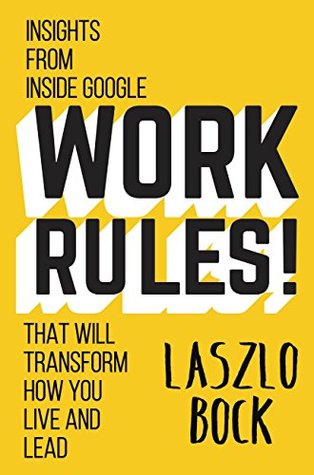More on this book
Community
Kindle Notes & Highlights
Do not give in to the pressure. Fight for quality.
If you’re committed to transforming your team or your organization, hiring better is the single best way to do it.
The first step to mass empowerment is making it safe for people to speak up. In
‘If you have facts, present them and we’ll use them. But if you have opinions, we’re gonna use mine.’
defaulting to open:
outcome variables we have: innovation (maintaining an environment that values and encourages both relentlessly improving existing products and taking enormous, visionary bets), execution (launching high-quality products quickly), and retention (keeping the people we want to keep).
Performance, showed that difficult, specific goals (“Try to get more than 90 percent correct”) were not only more motivating than vague exhortations or low expectations (“Try your best”), but that they actually resulted in superior performance.
If you expect little, that’s what you’ll get.
What managers miss is that every time they give up a little control, it creates a wonderful opportunity for their team to step up, while giving the manager herself more time for new challenges. Pick an area where your people are frustrated, and let them fix it. If there are constraints, limited time or money, tell them what they are. Be transparent with your people and give them a voice in shaping your team or company.
WORK RULES…FOR MASS EMPOWERMENT
If you’re achieving all your goals, you’re not setting them aggressively enough.
“If you set a crazy, ambitious goal and miss it, you’ll still achieve something remarkable.”
it’s kinder to be direct with an employee:
if you believe people are fundamentally good and worthy of trust, you must be honest and transparent with them.
That includes telling them when they are lagging behind in their performance.
people who are performing poorly know it and want to get better. It’s important to give them that chance.
amazing managers mattered a lot.
double-blind interview methodology, because it prevents the interviewer from biasing the interviewee, and the interviewee doesn’t know which category they are in either. In
both the interviewer and interviewee are “blind” to the experimental condition.
The 8 Project Oxygen Attributes
Sample UFS Feedback Questionnaire
if we wanted people to be open-minded and change their behaviors, we had to make this a compassionate tool, focused on development rather than rewards and punishment.
manager quality drives performance, retention, and happiness, it means the company will perform better over time.
Care about upgrading your organization.
Gather the data.
Survey teams twice a year and see how managers are doing.
Have the people who are best at each attribute train everyone else.
pursuing perfection in an intensely specific skill.
the best way to learn.
It’s a better investment to deliver less content and have people retain it, than it is to deliver more hours of “learning” that is quickly forgotten.
Every meeting ended with immediate feedback and a plan for what to continue to do or change for next time.
The local maximum is the highest value within a more constrained range of values.
because individual performance scales linearly, while teaching scales geometrically.
Academics and professional trainers tend to have theoretical knowledge. They know how things ought to work, but haven’t lived them.
Consultants tend to have shallow and thirdhand knowledge,
MindBody Awareness:
Presenting with Charisma:
I2P (Intro to Programming for Non-Engineers):
70 percent of learning should happen through on-the-job experiences, 20 percent through coaching and mentoring, and 10 percent through classroom instruction.
Fairness in pay does not mean everyone at the same job level is paid the same or within 20 percent of one another.
Fairness is when pay is commensurate with contribution.
Celebrate accomplishment, not compensation
too many companies, people who do great things are not justly rewarded.
“Fairness perceptions are very powerful. They affect how people think about almost everything at work, but especially how valued they think they are, how satisfied they are with their jobs, how much they trust their supervisors, and their commitment to the organization.”
Non-cash awards,
respond to failure by trying again instead of giving up.”
when you do reward people, make sure to sprinkle in experiences, not just cash.
Celebrate success with actions, not dollars.
Ease the pain of failure to leave room for learning.
If your goals are ambitious and crazy enough, even failure will be a pretty good achievement.


